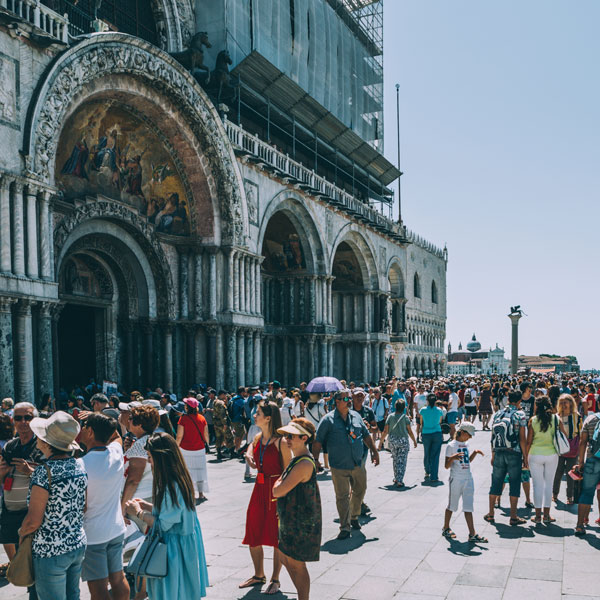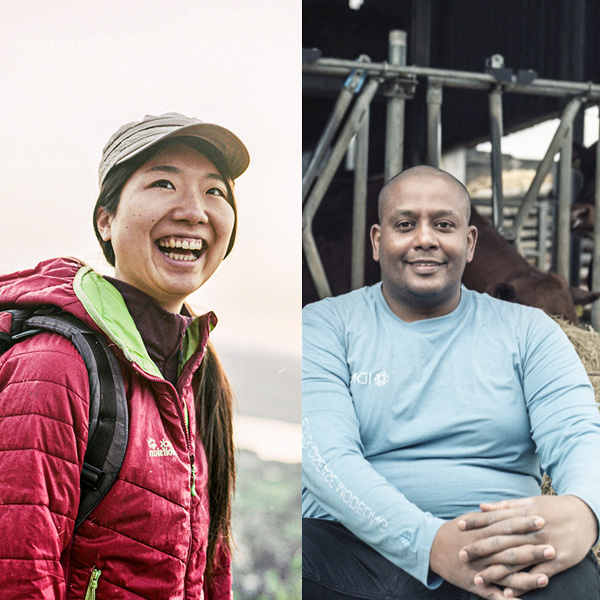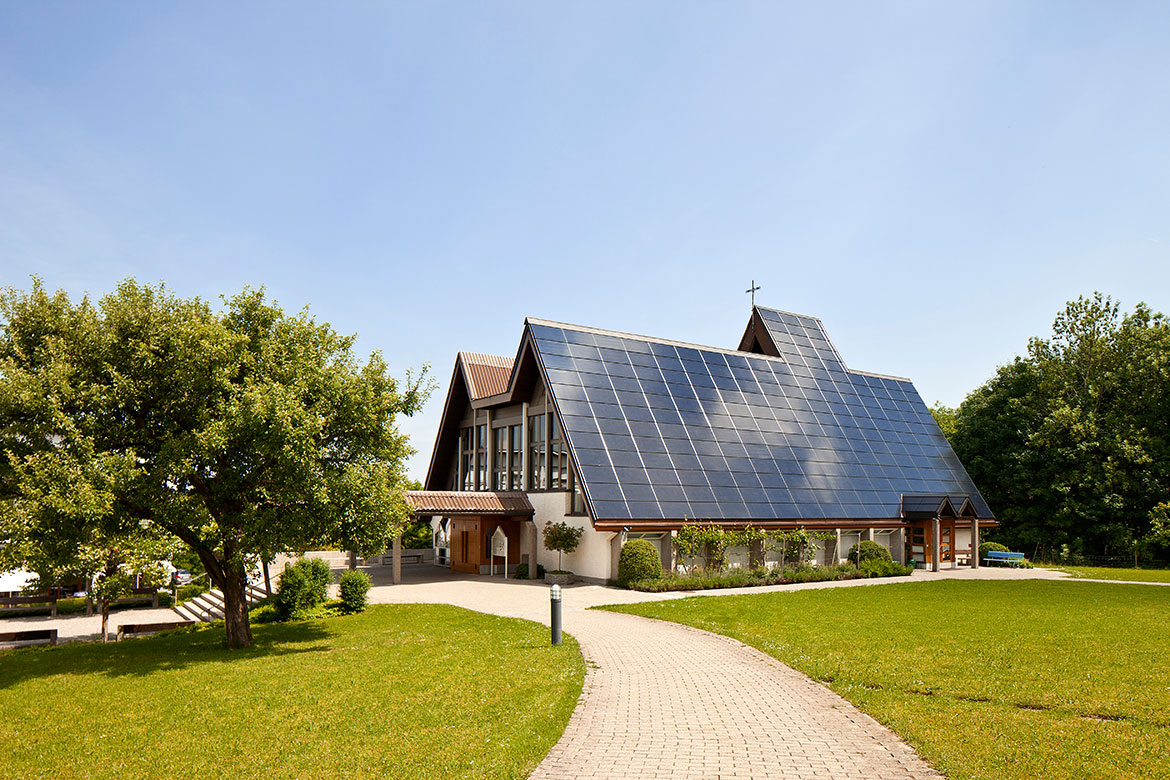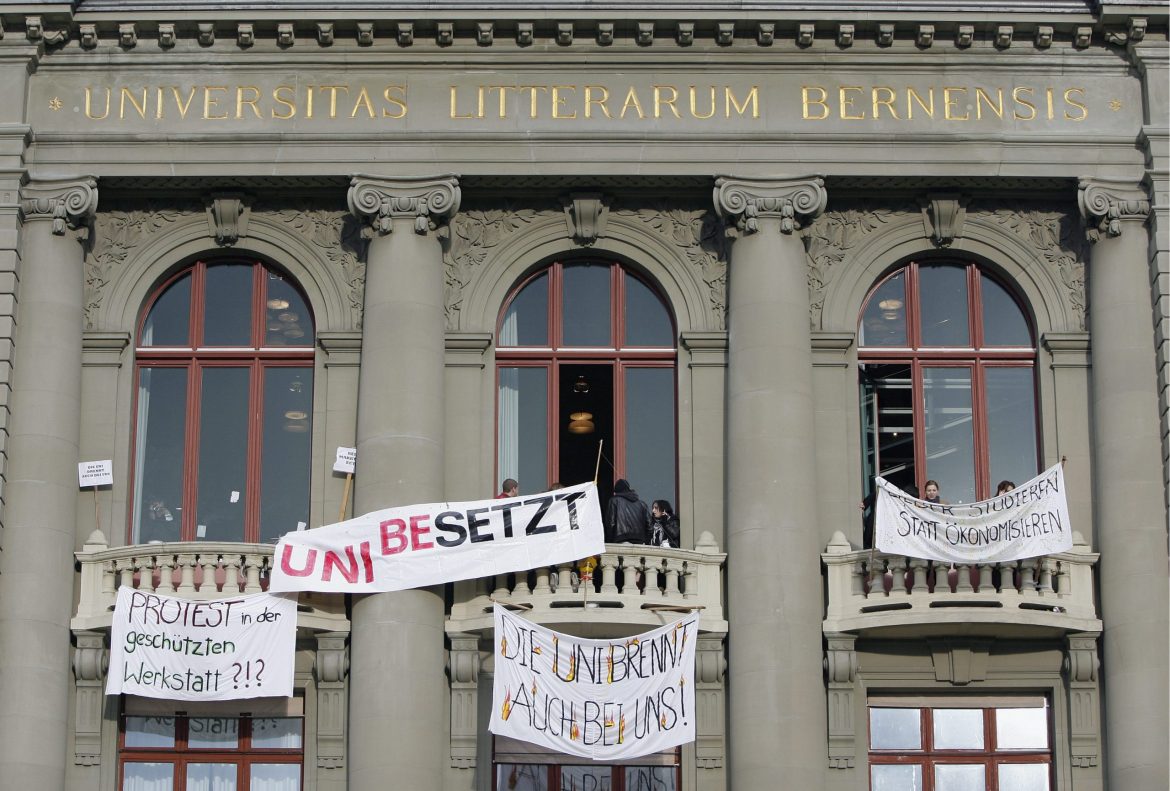Feature: Lessons from the pandemic
“Only demonstrating consensus gives a false impression of science”
Caspar Hirschi
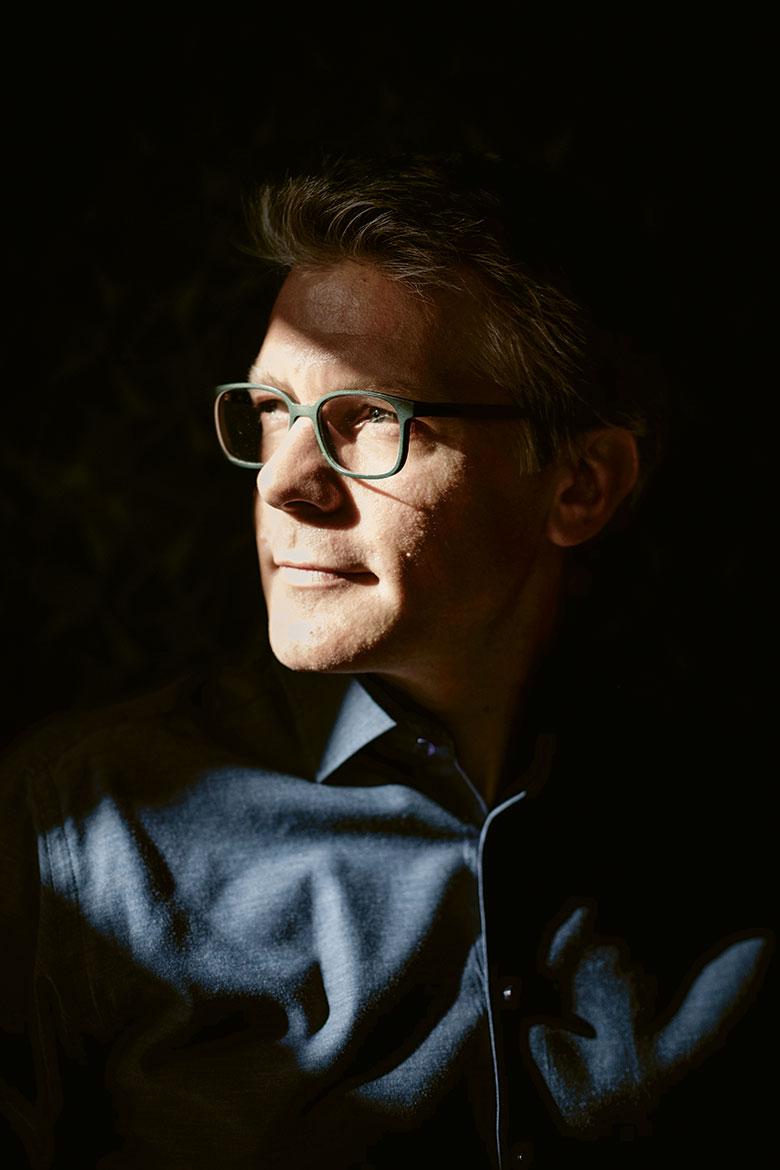
Scientists and science journalists known more about the difference between science and politics than politicians do, says the historian Caspar Hirschi. | Image: Anne Gabriel-Jürgens
Since the start of the Covid-19 crisis, epidemiologists and virologists have featured on the front pages of the media. How has this changed society’s view of experts?
Before the crisis, views were polarised. Some people glorified experts, regarding them as bearers of truth or even as some kind of prophet, while others demonised them as servants of the establishment or even enemies of democracy. The former camp propagated technocratic illusions, while the latter fuelled populist conceits. The best examples where we can see both sides are the debates around Brexit and climate change. In the Covid-19 crisis, it initially seemed as if the whole charade would be repeated. But then a more realistic picture emerged in which both our need for expert knowledge and its limitations became visible. I hope that this is a sign of a new beginning.
Just who are the experts during this pandemic?
The pragmatic answer is: those whom we treat as experts. But there is a considerable gap here between the perceptions of the media and the politicians, especially in Switzerland. Journalists very quickly became convinced that the most important experts were the epidemiologists and the virologists. Our politicians relied more on experts in clinical medicine, though they failed to communicate this aggressively enough. That in turn led the media to accuse politicians of listening to the wrong people.
Did the media consult the best people?
From their perspective: yes. Their experts were telegenic, verbally dexterous men whose media-savvy statements had already garnered attention on Twitter. But some of them had little experience of offering advice in matters of science policy, and not all of them had an extensive track record in this particular research field, despite the claims made about them in the media. Isabella Eckerle is a proven specialist in coronaviruses at the University of Geneva. The newspaper Le Temps quoted her as saying that there are men “who present themselves as experts, even though they never published any research into coronaviruses before 2020”. For a long time, she was barely mentioned in the German-language media, despite the fact that is her mother tongue.
Several countries have seen experts engage in public disputes. Does this damage the credibility of science?
I find that notion wrong, and in fact it’s dangerous. First, we are giving a false impression of science if we only demonstrate consensus to the outside world. Secondly, if we refrain from engaging in public debate, then we are simply fuelling the technocratic illusion that there is a single scientific truth, and all our politicians have to do is to implement it. Public debate among experts has to be possible in a democratic society. As long as the debate is about the issues and not about the people, then it fulfils an essential political function. What matters is that researchers in a dispute don’t let themselves be exploited by third parties.
Who should be responsible for ensuring a relationship of trust between scientists and politicians?
Both sides. In Switzerland, mutual concerns existed right from the start, despite the fortunate coincidence that the SNSF and the Swiss Academies are currently led by two experienced epidemiologists.
Has the Swiss Covid-19 Science Task Force done effective work up to now?
The Bernese economist Aymo Brunetti has said it’s better to rely on existing structures in times of crisis than to create new ones. When you’re trying to extinguish a fire, you have to use tried and tested procedures. So it was a risk to set up a science task force in the middle of the crisis. It was made more difficult by including the federal government’s most vociferous critics, and they found it tough to switch roles and become official advisors to the politicians. In the media, the Task Force became prominent mostly on account of its doubts about the easing process. This created an impression that the politicians were being negligent and that the researchers were devoid of influence. It is important that science lays claim to a bigger role in advising the politicians – though Bern should rather have utilised the structures and informal networks that it already had at its disposal. Their public visibility would have been less than that of the Task Force, but their influence might have been greater.
You have already warned us about how researchers might be exploited by politicians. Has this actually happened?
This became a problem in Germany, but not in Switzerland.
The German virologist Christian Drosten has described himself as the navigator of a ship, not the helmsman. How can the broader public be made better aware of the different tasks of scientists and politicians?
The way to do this is for the experts to offer detailed insights into their work. This is what makes Christian Drosten’s podcast for North-German Radio so important. Before this crisis, people hardly had any opportunity to trace in real time how researchers work under pressure of time and expectation – how they evaluate the latest studies, create hypotheses, and discuss uncertainties. His podcast helps the public to comprehend the importance of the division of roles between experts and decision-makers. What’s more, it has shown that science journalism can make a big contribution to a broader understanding of that division.
Shouldn’t politicians be clearer about this separation of duties?
Of course. I’m only emphasising the responsibilities of the scientists because I assume they have a greater awareness of the problem.
When people tried to understand the pandemic, experts in the natural sciences were their first port of call. But have scientists and scholars in other fields been unfairly neglected?
At present, experts from the humanities and the social and political sciences are missing in action, as are legal experts. It should be their task to assess the potential for collateral damage and the long-term consequences of the political decisions made in the wake of the pandemic.
Are there aspects of the science sector that might be improved after the pandemic?
What’s positive is that assessing scientific quality is taking place in the public eye again. Researchers involved in the pandemic quickly realised that more people have to participate in validating their research results, and that those results have to be publicised straightaway. That is why preprint servers and Twitter have gained in significance, and it’s why the peer-review process has lost some of its importance.
What will be worse after the crisis?
The current speed of things is intensifying the danger that expectations will be lowered for the quality of research that is presented to the general public. The status of those advising politicians is also potentially on thin ice. We need clear standards for how to feed scientific results into the political process.
So what is your personal recommendation?
I propose a new consensus: that scientific findings first have to survive public criticism by experts before being presented to politicians as scientific facts. This would also have a positive impact on our culture of scientific discourse.

